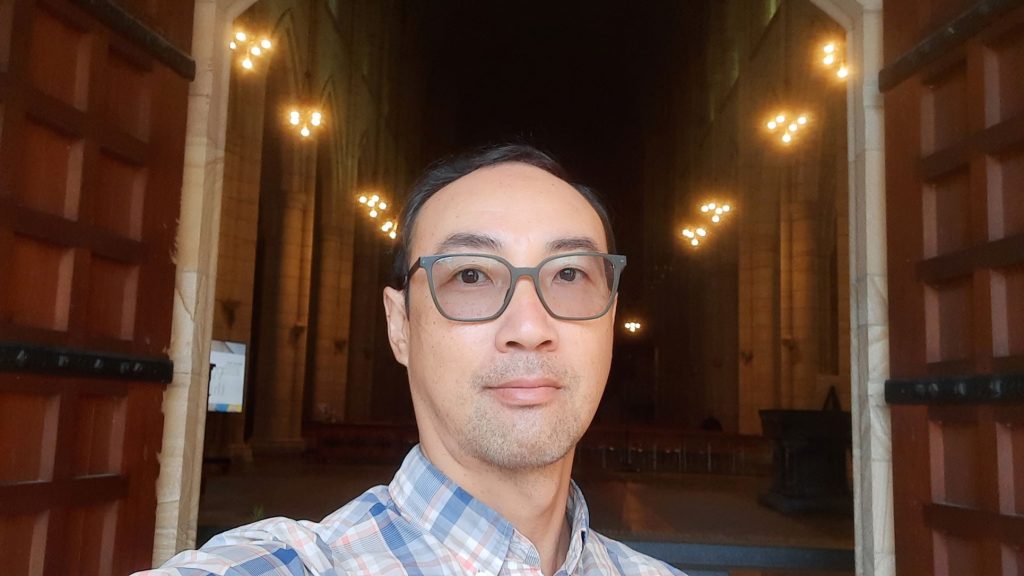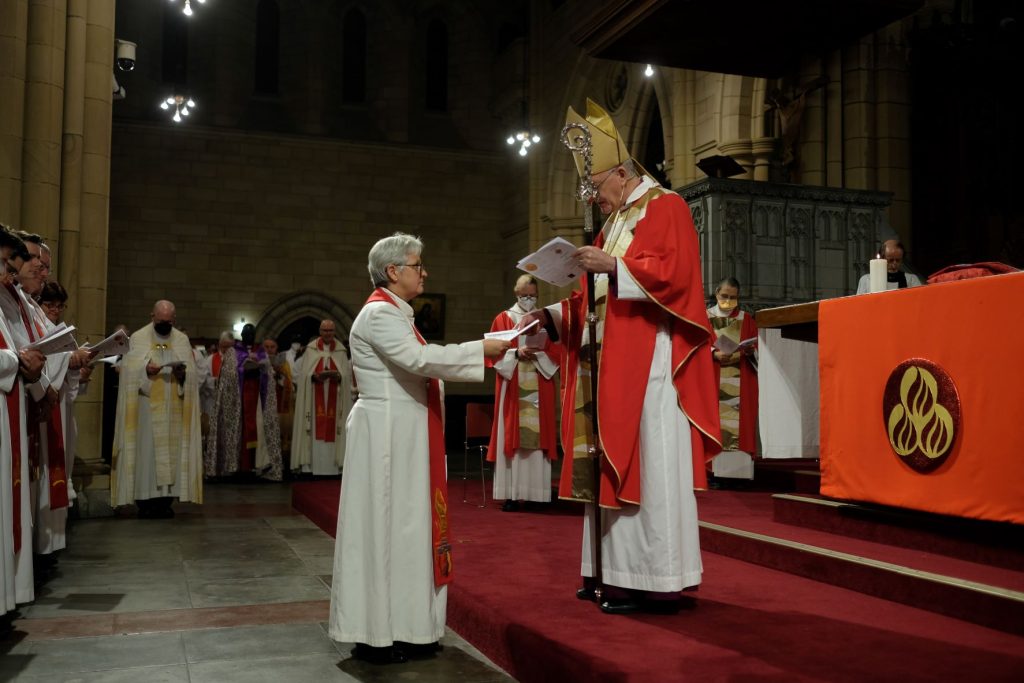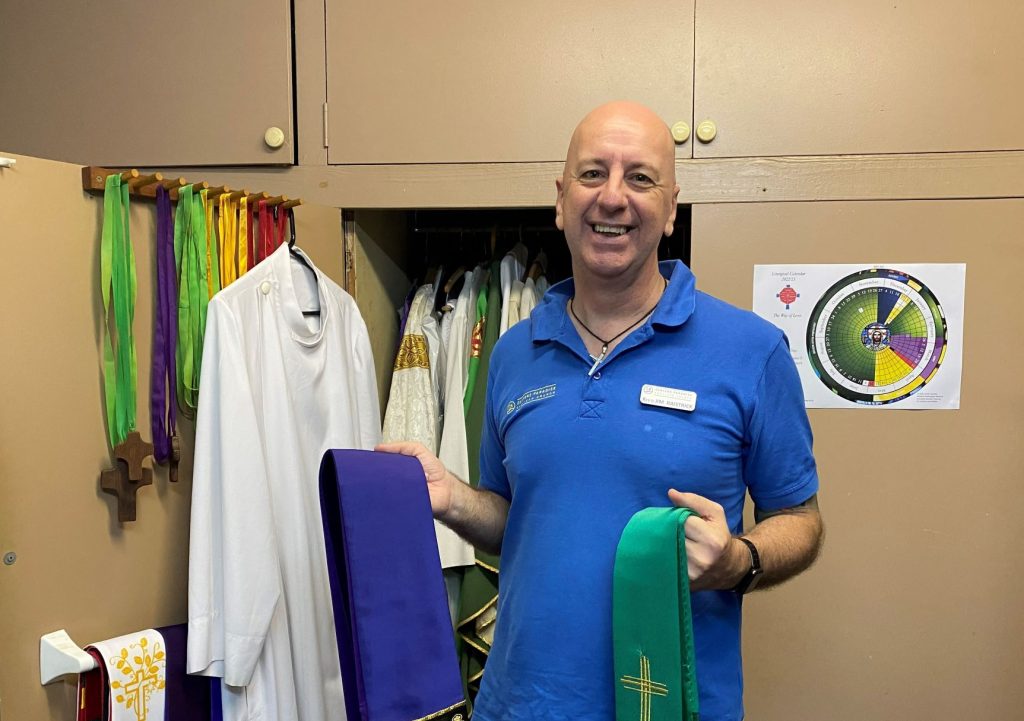What is your favourite Gospel of Matthew passage and why? | Bettrys Lowe, Colin Lim, Ruth Mathieson and Jim Raistrick
Reflections
Four members of our Diocesan community tell us about their favourite passage from the Gospel of Matthew, including Bettrys Lowe, Colin Lim, The Rev’d Dr Ruth Mathieson and The Rev’d Jim Raistrick

Bettrys Lowe – Children’s and Families Minister, St Bart’s Toowoomba
The Gospel of Matthew is filled with many amazing passages that help us answer the question “Who is Jesus?” I particularly love rereading Jesus Calms the Storm from Matthew 8.23-27.
It can be found in every children’s storybook Bible. It has been illustrated in thousands of ways. It is such a simple and short recount. And yet there is almost nothing simple about it:
“Suddenly a terrible storm came up on the lake. The waves crashed over the boat…Then Jesus got up and ordered the winds and the waves to stop. It became completely calm.” (Verses 24, 26b)
Advertisement
This scene is full of such vivid imagery. Winds raging, waves surging, and rough waters all around. As one who suffers from seasickness, I would have done exactly as those disciples had and woken Jesus so that something could be done to make it stop!
What I particularly love is that just as quickly as the storm began, it stops.
Why? Because Jesus said. Such authority and power that even the winds and waves obeyed him. And I can’t help but be pointed back to the creation story when God said…and it was so.
This simple passage in Matthew involving a boat, a storm, and scared disciples is packed with truths about who Jesus is – that he is the Son of God, with power and authority over all things. Not to mention the fact that he has the ability to remain super chilled during a crisis.

“Jesus did not come into the world simply because we have some bad habits that need to be broken. He came into the world because we have hearts that need to be purified” (Colin Lim, 2023)
Colin Lim – Spiritual and Pastoral Care Manager, Anglicare Southern Queensland
My favourite line in Matthew’s gospel is “Blessed are the pure in heart, for they shall see God” (Matthew 5.8).
This verse speaks of two important people in my life – Theresa the wife, and Jesus the Christ. Even though Theresa was not a Christian when we first met, her Christ-like integrity and honesty intrigued me because I had not come across anyone with such a pure heart.
I had the “why” to live through my faith, but it is after meeting Theresa that I really began to think and live a life of purity that is in line with Jesus’ teaching and desire. Likewise, Theresa had the “how” to live with pureness in her thoughts and way of life. When I introduced her to my “why”, she saw and accepted God to be her meaning and purpose.
Advertisement
You could say we filled our respective voids in relation to this verse because God brought us together.
As Jesus’ teaching in the Beatitudes turned upside down the political and social world of his time, so too does it apply for us today. A reflection by New Testament scholar John Piper captures the essence of this: “The first thing we learn from this beatitude is that Jesus is concerned with our heart. It is not enough to clean up our act on the outside.”
So the heart is utterly crucial to Jesus. What we are in the deep, private recesses of our lives is what he cares about most. Jesus did not come into the world simply because we have some bad habits that need to be broken. He came into the world because we have hearts that need to be purified.
God shows me how through Theresa.

“Matthew continually reminds us that God calls us into community, albeit if only two or three. Emmanuel is God with us – not God with me” (The Rev’d Dr Ruth Mathieson pictured at her commissioning in St John’s Cathedral in 2022)
The Rev’d Dr Ruth Mathieson – Principal, St Francis College
One of my favourite passages in St Matthew’s Gospel is “For where two or three are gathered in my name, I am there among them” (Matthew 18.20 NRSV) or as in the RSV, “there I am in the midst of them.” I remember this phrase from my childhood.
My father was the parish priest of Ceduna in the 1970s. It was a geographically large parish stretching across the Nullarbor Plain to the border, but sparsely populated with small churches and gatherings in people’s homes. On a few occasions our family of four doubled the congregation.
I love the assurance that God is with us even when only two or three are gathered. It reminds me that Matthew introduces Jesus as Emmanuel, “God-with-us” (Matthew 1.23) and at the very end of Matthew’s Gospel, Jesus says to his disciples: “Remember I am with you until the end of the age” (Matthew 28.20). It is encouraging to know God is with us even if only two or three of us are gathered. I have felt very aware of Jesus’ presence in gatherings in small churches, nursing homes, homes visits and even on Zoom during Evening Prayer.
Matthew continually reminds us that God calls us into community, albeit if only two or three. Emmanuel is God with us – not God with me. It is to a group of disciples that Jesus promises to be with to the end of the era. Very significantly, in Matthew’s Gospel Jesus teaches us to pray to “Our Father” (Matthew 6.9).

“Jesus was fully God and fully human. He lived in this world, alongside people who were distracted, bored, angry and struggling” (The Rev’d Jim Raistrick)
The Rev’d Jim Raistrick – Priest-in-Charge, The Parish of Surfers Paradise
It might sound a bit strange, but my favourite passage in Matthew’s gospel account is:
“If your right eye causes you to sin, tear it out and throw it away; it is better for you to lose one of your members than for your whole body to be thrown into hell.” (Matthew 5.29)
These words of Jesus speak to the ownership of behaviour and need for us to take responsibility for ourselves. Too often we seek to blame things, situations, even other people for our actions or reactions. For example, I know with myself that it sometimes doesn’t take much to “trigger” me while driving in traffic with distracted drivers. I can find my temperature rise when I see the light turn green and other drivers take off while the person in front of me seems too distracted with whatever else they’re doing rather than moving along with the rest of the cars.
I get angry with this because paying attention at the traffic lights is a given. Yet when I recall these words of Jesus, I see that the responsibility for maintaining my temper, regulating my emotions and taking responsibility for my own behaviours sit squarely with me.
Jesus was fully God and fully human. He lived in this world, alongside people who were distracted, bored, angry and struggling. His words to those people are words that are relevant for us all – we will all be held to account for the maintenance of our own selves. We all need to take ownership for our response to His call on our lives.





